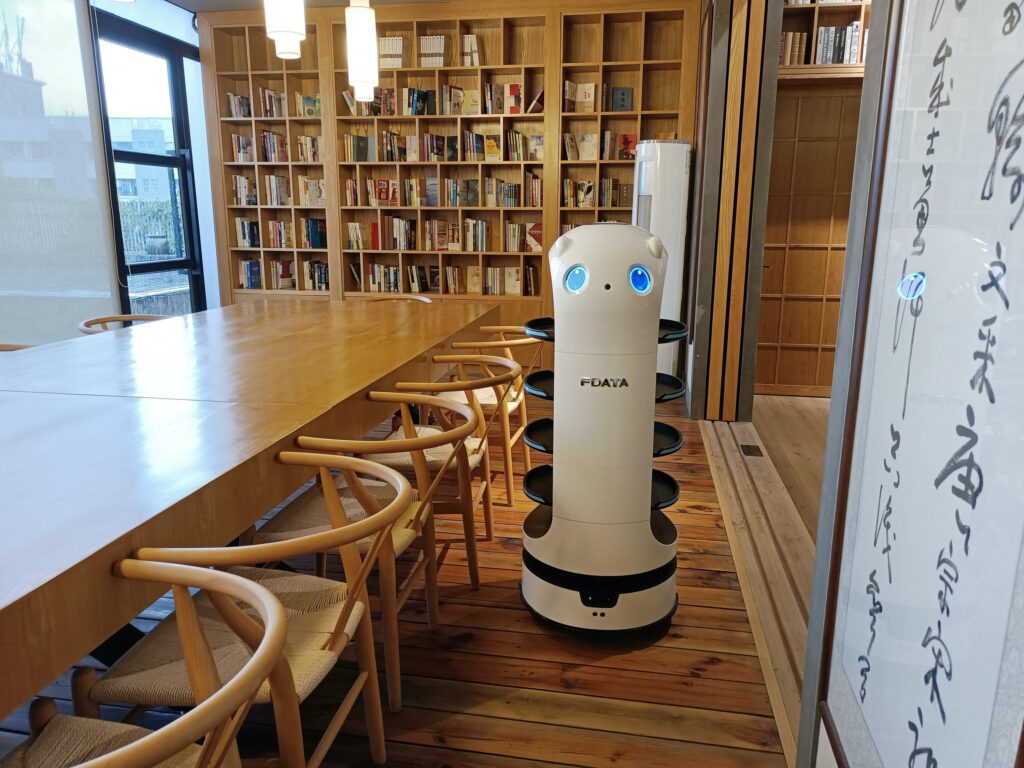Are we ready to say goodbye to tipping culture? Hold your horses; not quite yet.

A peculiar sight caught my attention as I scrolled through TikTok—a friend’s post featuring a video of a robot diligently delivering food to his table. Intrigued, I embarked on a journey of research to determine the veracity of this robotic phenomenon. As it turns out, robot servers might be on the cusp of becoming the next big thing, potentially offering a lifeline to struggling small business owners. Is this considered the future of work?
At the heart of this emerging trend lies a pressing issue: the restaurant industry is grappling with a severe worker shortage. Factors such as low pay, lack of healthcare benefits, unpredictable hours, and challenging work culture have coalesced into a perfect storm, dissuading many employees from returning to the restaurant scene. Enter the robot waitress—a technological solution poised not to replace human workers but to assist them in managing their roles more efficiently, potentially alleviating some of the challenges that have plagued the industry.
Replacing Mundane Tasks
While these robots may not possess the nuanced capabilities of their human counterparts, they excel at handling mundane tasks such as delivering food to tables, taking orders, and even partaking in a rendition of “Happy Birthday.” Their versatility positions them as potential assets across various hospitality settings, including restaurants, cafes, hotels, and dealerships.
Tipping Culture Out the Door?
The integration of robot servers into the restaurant industry raises questions about how this technological shift might be received by both customers and those working in the sector. The concept of tipping, deeply ingrained in the culture of many countries, adds an additional layer of complexity to the discussion. Tipping is often viewed as a direct acknowledgment of the service provided by human staff, recognizing their efforts and contributing to their income.
The introduction of robot servers, however, prompts a reevaluation of this traditional practice. Do customers tip a robot for efficiently delivering their meals and providing seamless service? Or does the responsibility of compensation solely rest on the business owner who invested in the technology? The nuances of tipping etiquette in the era of robot servers are yet to be defined.
Beyond the tipping debate, the potential benefits of robot servers extend to the very heart of the industry’s current challenges. Small business owners, particularly those hit hard by the labor shortage, might find solace in the reliability and consistency that robots bring to the table. The ability to automate routine tasks allows human staff to focus on more complex aspects of service, potentially enhancing the overall dining experience for patrons.
Yet, the prospect of a restaurant staffed, even partially, by robots sparks a myriad of emotions and concerns. Will the personalized touch of human interaction be sacrificed at the altar of efficiency? Can robots truly replicate the warmth, empathy, and intuition that human servers bring to the dining experience? The balance between technological innovation and preserving the essence of hospitality is a delicate one, and finding the sweet spot will likely be an ongoing challenge.
The advent of robot servers in the restaurant industry not only prompts a reevaluation of tipping culture but also sparks discussions about the broader societal implications of embracing such technological advancements. Beyond the immediate challenges faced by the industry, questions arise regarding the potential impact on the nature of employment and the skill sets required in the hospitality sector. While robots can efficiently handle routine tasks, the need for human skills such as emotional intelligence, creativity, and adaptability remains undeniable.
As we stand on the precipice of a potential shift in the dynamics of the restaurant industry, one thing is clear—robot servers are not merely a gimmick but a response to real challenges faced by the sector. How society embraces, adapts, and navigates the integration of these technological helpers will shape the future of dining out. Will we bid farewell to tipping culture, or will it adapt to encompass both the human touch and the precision of artificial intelligence? Only time will reveal the intricacies of this culinary evolution.

